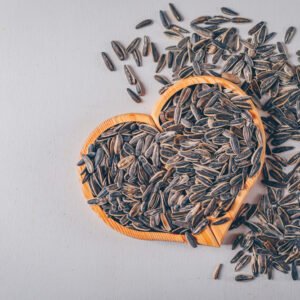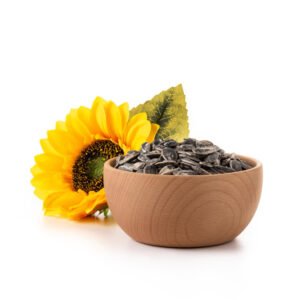Indian cuisine has always been known for its rich flavors and aromatic spices. What many people don’t realize is that these same spices can play a powerful role in supporting healthy weight management. From turmeric to black pepper, Indian spices offer natural compounds that may boost metabolism, reduce fat storage, and control appetite.
Let’s break it down and explore how these kitchen staples can become your allies in maintaining a healthy weight.
Why Indian Spices Work for Weight Management
Indian spices contain bioactive compounds that interact with your body’s natural processes. These compounds can influence how you burn calories, store fat, and manage hunger signals. Unlike synthetic supplements, spices have been used for centuries in Ayurvedic medicine, offering a time-tested approach to wellness.
The science backs this up too. Research shows that certain spices can increase thermogenesis, which is the process your body uses to generate heat and burn calories. Others help regulate blood sugar levels, preventing the spikes and crashes that lead to cravings and overeating.
CMS Industries supplies premium quality spices that retain their natural properties and potency. When you choose high-quality spices, you get maximum benefits from their active compounds.
Also Read:- Should You Choose Green Millet or Red Millet for Weight Loss?
Top Indian Spices for Weight Management
Turmeric: The Golden Spice for Fat Loss
Turmeric stands out as one of the most researched spices for weight management. The active compound curcumin gives turmeric its bright yellow color and its fat-fighting properties. Studies indicate that curcumin may help reduce body mass index, waist circumference, and overall weight in people dealing with metabolic conditions.
How does it work? Curcumin appears to suppress the formation of new fat cells while increasing fat burning. It also helps manage inflammation, which is often linked to obesity. A 2023 research review found that curcumin supplementation could support weight reduction through its anti-inflammatory effects.
Add turmeric to your daily routine by mixing it into warm milk, sprinkling it on roasted vegetables, or blending it into smoothies. The key is consistency.
Black Pepper: Small but Mighty
Black pepper contains piperine, a compound that does more than add heat to your food. Piperine can block the formation of new fat cells and improve the absorption of other nutrients, including curcumin from turmeric. This makes black pepper an excellent companion spice.
Studies suggest that piperine may increase your metabolic rate, helping you burn more calories throughout the day. It also aids digestion, which is essential for proper nutrient absorption and waste elimination.
Try adding freshly ground black pepper to your meals instead of table salt. The fresh grind releases more piperine than pre-ground versions.
Cinnamon: Balance Your Blood Sugar
Cinnamon offers natural appetite control by helping stabilize blood sugar levels. When your blood sugar remains steady, you experience fewer cravings and less hunger between meals. This makes it easier to maintain a calorie deficit without feeling deprived.
The spice also accelerates your metabolism naturally. Research shows that cinnamon can improve insulin sensitivity, which affects how your body stores or burns fat. Better insulin sensitivity means your body is more likely to use glucose for energy rather than storing it as fat.
Start your morning with a sprinkle of cinnamon in your coffee or oatmeal. You can also add it to smoothies or yogurt for a sweet flavor without added sugar.
Ginger: Fire Up Your Metabolism
Ginger has been valued in traditional medicine for its digestive and metabolic benefits. The compounds gingerol and shogaol give ginger its characteristic spicy flavor and therapeutic properties. These compounds may help increase calorie burning and reduce fat absorption in the digestive tract.
Fresh ginger can reduce feelings of hunger and increase feelings of fullness. A study found that consuming ginger enhanced thermogenesis and reduced feelings of hunger in overweight men. This dual action makes it particularly useful for weight management.
Brew fresh ginger tea by steeping sliced ginger in hot water, or add grated ginger to stir-fries and curries. The fresh root contains higher levels of active compounds than dried ginger powder.
Cumin: Boost Fat Burning
Cumin seeds are a staple in Indian cooking and offer surprising benefits for weight management. Research shows that cumin can help reduce body fat percentage and improve cholesterol profiles. The spice contains compounds that may increase your metabolic rate and improve digestion.
One study found that women who consumed cumin powder daily lost more body fat compared to those who didn’t. The participants also showed improvements in their lipid profiles, which means better heart health alongside weight management.
Toast cumin seeds lightly before grinding them for maximum flavor and potency. Add them to lentils, rice dishes, or vegetables for an authentic Indian taste.
Fenugreek: Control Your Appetite
Fenugreek seeds contain high amounts of soluble fiber, which slows digestion and helps you feel full longer. This natural appetite suppressant can reduce overall calorie intake without requiring strict portion control. The seeds also help regulate blood sugar levels, preventing the energy crashes that lead to snacking.
Research suggests that fenugreek may improve fat metabolism and reduce fat accumulation in the liver. Soak fenugreek seeds overnight and chew them on an empty stomach, or add the ground seeds to your cooking.
The slightly bitter taste might take some getting used to, but the benefits make it worthwhile.
Cardamom: Support Healthy Metabolism
Cardamom is a fragrant spice that may help increase energy expenditure and fat oxidation. Both green and black cardamom varieties offer health benefits, though they have slightly different flavor profiles. The spice contains compounds that may protect against diet-related obesity.
Add cardamom pods to your chai tea or use ground cardamom in baking. The spice pairs well with both sweet and savory dishes, making it versatile for daily use.
Red Chili Pepper: Turn Up the Heat
Capsaicin, the compound that makes chilies hot, can temporarily boost your metabolism. Studies show that capsaicin may increase the number of calories you burn throughout the day and reduce appetite. The heat you feel after eating spicy food is actually your body working harder and burning more energy.
Red chili peppers also help reduce cravings for fatty, sweet, and salty foods. Start with small amounts if you’re not used to spicy food, and gradually increase as your tolerance builds.
How CMS Industries Ensures Quality Spices
CMS Industries stands as a leading agricultural products manufacturer and exporter in India, specializing in premium quality spices. Located in Kachchh, Gujarat, the company has built its reputation over two decades by focusing on quality and nutrition content.
The company sources spices ethically from farmers across India, ensuring fair compensation and sustainable practices. Their range includes turmeric, black pepper, cumin, ginger, and other spices used for both culinary and health purposes. When spices retain their natural properties through proper processing and storage, they deliver maximum health benefits.
CMS Industries exports to global markets, meeting international quality standards while supporting local farmers. Their commitment to organic and naturally derived products makes them a reliable source for authentic Indian spices.
Practical Ways to Use These Spices Daily
Creating a weight management routine with spices doesn’t require complicated recipes. Here’s how to incorporate them naturally:
- Morning Routine: Start your day with warm water mixed with turmeric, ginger, and a pinch of black pepper. This combination wakes up your metabolism and aids digestion.
- During Meals: Season your proteins and vegetables with cumin, coriander, and black pepper instead of heavy sauces. Roast vegetables with turmeric and cinnamon for natural sweetness.
- Beverages: Brew chai tea with cardamom, ginger, and cinnamon. Avoid adding excessive sugar to keep it weight-friendly.
- Snacks: Sprinkle cinnamon on apple slices or mix it into Greek yogurt. Add a dash of cayenne to roasted chickpeas for a spicy, satisfying snack.
Remember that spices work best as part of a balanced diet and active lifestyle. They support your efforts but don’t replace healthy eating habits and regular exercise.
The Science Behind Spices and Weight Management
Multiple studies have examined how spices affect body composition and metabolism. A systematic review of clinical trials found that several culinary herbs and spices showed statistically significant reductions in obesity markers. The research included studies on turmeric, ginger, black pepper, and cinnamon.
These spices work through different mechanisms. Some increase thermogenesis, which means your body produces more heat and burns more calories at rest. Others improve insulin sensitivity, helping your body process glucose more effectively. Still others reduce inflammation, which is increasingly recognized as a factor in obesity.
The key is that these are natural compounds working with your body’s existing systems. They don’t force dramatic changes but rather support healthy function.
Combining Spices for Maximum Effect
Certain spice combinations work better together than separately. The classic example is turmeric with black pepper. Piperine from black pepper increases curcumin absorption by up to 2000%. This means you get much more benefit from turmeric when you consume it with black pepper.
Ginger and cinnamon make another powerful pair. Both work on blood sugar regulation and metabolism, offering complementary benefits. Try adding both to your morning tea or smoothie.
Cumin and fenugreek seeds can be combined in cooking to support digestion and appetite control. Toast them together before adding to curries or dal.
Safety and Considerations
While Indian spices are generally safe for most people, moderation matters. Consuming large amounts of any spice can cause digestive upset or interact with medications. If you take blood thinners, talk to your doctor before increasing turmeric intake, as it has mild blood-thinning properties.
Pregnant and nursing women should consult healthcare providers before using medicinal amounts of spices. Some spices, like fenugreek, may affect hormone levels or milk production.
Start with small amounts and pay attention to how your body responds. Everyone’s tolerance and reaction to spices differs.
Beyond Weight: Additional Health Benefits
The Indian spices for weight management offer benefits that extend beyond the number on your scale. Turmeric supports joint health and may protect brain function. Ginger eases nausea and supports immune function. Cinnamon helps manage type 2 diabetes risk.
Black pepper enhances nutrient absorption, meaning you get more benefit from the healthy foods you eat. Cumin provides iron and aids digestion. These spices contribute to overall wellness, not just weight management.
This makes them valuable additions to your diet regardless of your weight goals. You’re investing in long-term health while working toward a healthy weight.
Making It Sustainable
The key to success with any weight management strategy is sustainability. Spices make it easier to stick with healthy eating because they add flavor without calories. Indian cuisine proves you can eat delicious, satisfying meals while pursuing health goals.
Focus on enjoying your food rather than viewing spices as medicine. Experiment with different combinations and find what you love. When healthy eating tastes good, it becomes a lifestyle rather than a temporary diet.
Buy whole spices when possible and grind them as needed. Whole spices retain their potency longer than pre-ground versions. Store them in airtight containers away from light and heat to preserve their properties.
Connect with Quality Spice Suppliers
Access to high-quality, authentic Indian spices makes all the difference in your results. CMS Industries provides premium agricultural products including a wide range of traditional Indian spices. Their commitment to quality ensures you receive spices with maximum potency and purity.
Whether you’re a home cook looking to add authentic flavors to your meals or interested in the health benefits of traditional spices, choosing a reliable supplier matters. CMS Industries’ expertise in agricultural products and ethical sourcing practices support both your health goals and sustainable farming.
Visit their website to explore their complete range of spices and learn more about their sustainable sourcing practices.
Frequently Asked Questions
Q1: How much turmeric should I consume daily for weight management?
Research studies typically use doses ranging from 80 to 2,100 milligrams of curcumin daily. For cooking purposes, aim for 1-2 teaspoons of turmeric powder per day. Always combine it with black pepper to boost absorption. Start with smaller amounts and increase gradually while monitoring how your body responds to avoid digestive discomfort.
Q2: Can I lose weight by just adding spices to my diet?
Spices support weight management but don’t work as a standalone solution. They boost metabolism, reduce appetite, and improve digestion, which helps create conditions for weight reduction. You still need to maintain a balanced diet with appropriate portions and stay physically active. Think of spices as helpful tools in your overall weight management strategy.
Q3: Are fresh spices better than dried ones for weight loss?
Both fresh and dried spices offer benefits, though they differ in concentration. Fresh ginger and turmeric contain active compounds in different proportions than dried versions. Dried spices are more concentrated, so you need less for the same effect. Use fresh spices when available, but high-quality dried spices from reputable suppliers work excellently too.
Q4: How long does it take to see results from using spices for weight management?
Most research studies show measurable results after eight to twelve weeks of consistent use. Your individual results depend on your overall diet, activity level, starting weight, and metabolism. Some people notice reduced appetite and improved digestion within days, while body composition changes take longer to appear on the scale.
Q5: Can I combine all these spices together in one meal?
Yes, combining multiple spices is safe and common in Indian cooking. Many traditional recipes include turmeric, cumin, ginger, and black pepper together. Start with smaller amounts of each spice if you’re new to Indian flavors. Pay attention to heat levels when combining chilies with other spices to ensure the dish remains enjoyable.




